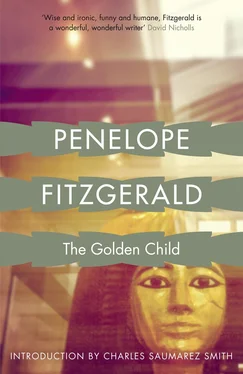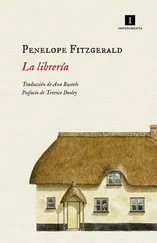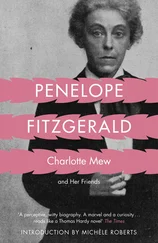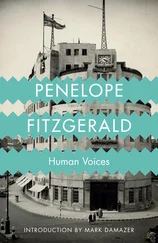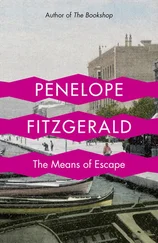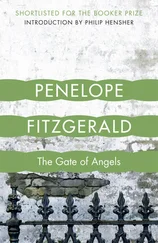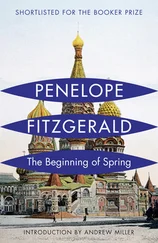‘… in Sir William’s room … a few words with two selected journalists … my good friend Peter Gratsos … Louis Sintram of The Times you will know of course …’
Rochegrosse-Bergson was a finished product, silver-haired but unmarked by time, wearing a velvet blazer and buckled shoes which could have belonged to one of several past centuries. The aura of one with many devotees, and — equally necessary to the Academician — many enemies, to whose intrigues in attempting to refute his theories he gracefully alluded, hung round about him. Professor Untermensch was smaller, darker, much quieter and much shabbier, but, on close examination, much more alarming, since he could be seen to be quivering with suppressed excitement. His jerky movements, the habitual sad gestures of the refugee, were accentuated, and his nose, as he humbly followed in the steps of the others, twitched, as though on the track of nourishment.
‘Could I have a word with you, Mr Hawthorne-Mannering?’ asked Deputy Security, suddenly advancing on the little group up an imposing side-staircase paved with marble.
‘It’s not at all convenient at the moment. Frankly, I find all these security precautions somewhat exaggerated. One’s distinguished visitors from abroad are disconcerted … After all, it’s not as though there were any specific trouble …’
‘That’s what I wanted to mention to you, Mr Hawthorne-Mannering. The police are in the building.’
2
‘THE police! One imagines they may well be here constantly, with the vast intrusion caused by the Exhibition …’
Hawthorne-Mannering realised at once that ‘intrusion’ was not the word he should have chosen, but he was too proud to change it.
‘If you could step in here, sir, just for a word with the police. Mace is the name — they’ve sent Inspector Mace from the station.’
‘But one’s guests …’
‘I could take them to the staff cafeteria if you think fit, for a glass of wine before the conference.’
This was a handsome offer from Deputy Security, but Hawthorne-Mannering received it with a finely-tuned suggestion of irritation.
‘I have already given them a glass of wine, though not from the staff cafeteria. I don’t know that Untermensch should have any more. He might easily become tipsy.’
Inexorably Deputy Security led the two savants away, while Hawthorne-Mannering was left in a small, almost disused room off the corridor, lined with cases containing some hundreds of Romano-British blue glass tear-bottles. Inspector Mace, more solid than anything else in the room, rose to meet him.
‘Well, Inspector, I hope you won’t regard it as offensive if I say that one is rather in a hurry …’
‘Quite so, sir. I’ve no intention of wasting time, either ours or yours. It is simply that due to increasing our force patrolling the area during the Exhibition it has been reported in passing by one of my men that cannabis indica is being illegally grown on one of the ground-floor window sills of the Museum. This, as you know, is a serious offence.’
‘In what possible way, Inspector, can I be concerned with this?’
‘We have been given to understand, sir, that you’re in charge of the Department of Funerary Art. The cannabis was being grown in what I am given to understand are known as “death pots”, that is, large funerary urns from your department. They were put just inside the window in an empty room to get the benefit of the central heating.’
‘With the Museum full of gold, you bother about two pots! If you mean to say that this is my sole connection with the affair …’
‘Have you noted down two pots as having gone missing, sir?’
‘The Museum has a holding of several thousand urns. Very few are on show at one time. I have not checked them personally for some months …’
‘I see. Meanwhile, perhaps you could inform us as to whether there are any registered addicts among your personnel?’
‘I can only say that I regret I am unable to help you. I recommend you to apply to Establishment, who engage the clerical staff. Meanwhile I recommend you, or implore you, or what you like, not to take any further steps until the Exhibition has been running a few more weeks. One has enough on one’s hands already.’
‘I am afraid we shall have to press the charges, sir,’ said Inspector Mace, but hesitation could be detected beneath his firm exterior. ‘The preliminary steps might, perhaps, be deferred a week or two. Of course, sir, we don’t wish to interrupt the wonderful public service the Museum is doing, in welcoming thousands of ordinary folk and giving them an opportunity to share its treasures …’
Escaping from the Inspector, Hawthorne-Mannering ascended with flying steps to Sir William’s room. The conference had already begun. Dr Rochegrosse-Bergson and Professor Untermensch had understandably declined the opportunity of a visit to the staff cafeteria, and had proceeded direct to the conference. All were seated, and the telephone had just rung, so that Miss Rank could signify that the Director was almost ready to join them. In another minute she rang through again, to say that he was on his way.
The queue, when Sir John glanced at it from the arched window which shed a chilly light into the corridor, looked tranquil enough. Frozen into submission, another fifty schools were marshalled into line, ‘closing up’ at every opportunity to give an illusion of forward motion. Round the WVS tea-stall the ground-frost had now melted, making a dark circular pattern. The whole area had become littered with plastic cups and spoons. Everything was orderly, there was no trouble at all.
The Director was well-known for his astounding power of cutting off his attention from one subject and focussing it on another, as a result of which, by the way, he had made a number of rather unwise decisions. But it enabled him now to forget both the enormous and the petty problems of administration as he entered Sir William’s room and looked round the assembly. The two journalists, exquisites for whom life could hold no further surprises, and removed by their foreign education from crass British prejudices, sat in their Italian silk shirts and deerskin jackets, waiting, in a kind of energetic idleness. Sintram had folded his long legs and placed one well-turned ankle on the opposite knee. Hawthorne-Mannering, pale as alabaster, was evidently dreadfully fussed. Sir William, having risen to greet the French and German scholars, had slumped down low, alarmingly low, in his easy chair and almost disappeared in his cloud of pipesmoke, depriving them of the formal speech of congratulations which both had intended to make. They were opening their briefcases. Rochegrosse-Bergson’s white hands slid over the golden clasp; the Professor’s case was shabby, and fastened with an unyielding zip. He sat altogether in the background, unconsidered and largely unaccounted for. As soon as the Director came in he fixed his sharp little eyes on him and concentrated on nothing else.
With the ease of long practice — evidently he could have lectured from a housetop, or in the middle of a desert — Rochegrosse-Bergson, in fluent English, commenced his discourse. After an entrée en matière , lasting a quarter of an hour exactly, he proceeded to a refutation of his unseen enemies.
‘Let us admit that Man, when he looks round at the world, tries, as his nature demands, to put some order or pattern into the confusing mass of objects he sees. What is this order? It is the error, the childish error of structuralists to believe that we divide all our concepts into twos, and only into twos. Mentally, do we not on the contrary see everything about us in threes?’
‘Some things look better in pairs,’ Sir William said. ‘They’d look odd if there were three of them.’
Читать дальше
